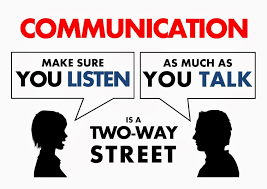For most of us, refereeing is not a primary job but an avocation. No matter how hard we work to do the best job we possibly can, we often find ourselves questioned and criticized for our decisions and the work we do.
Generally speaking, as referees, we have a tough assignment, but unfortunately, we bring some criticism upon ourselves.
When accepting assignments, officials must realize that besides knowledge of the Laws, positioning, fitness, and signaling, game management is a big part of their responsibilities and expectations. Effective communication will go a long way to help officials earn respect and improve their game control.
Communication is a two-way street. There must be a sender and a receiver to complete the process. The most impressive and successful referees communicate effectively with players and others without taking on an air of superiority.
When arriving at a game site, greet the people you encounter with a smile and show that you are happy to be there. If you cannot, maybe you should have considered declining the assignment. First impressions are very important.
Hold a cordial meeting with the coaches and captains. Keep the conversation short and do not show any connection or favoritism, real or perceived, toward either team. Without interfering with their pre-game routines, be visible. Do not be afraid to talk with the players without getting too involved. Show that you are approachable and willing to listen. You want to build a rapport before the game starts.

Always remember that the game is NOT about you; it is about the players. Those in attendance did not come because of you or to see you. Like the conductor of an orchestra, you are there to help everyone have a good time and enjoy themselves. Leave your ego off the field.
Everyone recognizes that we are human and we will make mistakes. If an incorrect call can be quickly righted, make the change and give a quick explanation. If the correction cannot be made, offer an honest response as promptly as possible without using long explanations or excuses. Your honesty will be recognized and respected.
As referees, we are not on the field to be popular or make friends, and we are not there to make enemies either. When speaking with people, we must do it on their level. Nobody likes to be spoken down to, yelled at, or embarrassed. It is important to control your speaking tone and be aware of your body language when communicating.
Communication is a two-way street, so while speaking to players and coaches or making calls, watch and listen to their reactions. They can provide much insight into the situation and offer helpful information. Making sure that you are not just a sender will help improve your communication skills.




